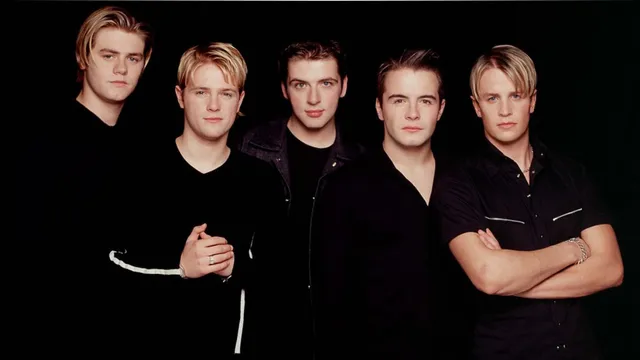In a world where musical trends shift with dizzying speed and artists often rise and fall like waves, few bands have managed to endure the test of time while maintaining both their identity and fan base. Westlife, the Irish pop vocal group formed in 1998, is one of those rare exceptions. Celebrating over 25 years in the music industry, the band’s legacy is etched into the hearts of millions around the globe. From their soaring ballads to their record-breaking chart success, Westlife’s journey is a remarkable tale of perseverance, harmony—both musical and personal—and timeless appeal.
The Rise of a Pop Phenomenon
Westlife was born out of the vibrant Irish pop scene in the late 1990s. Originally comprising Shane Filan, Mark Feehily, Kian Egan, Nicky Byrne, and Brian McFadden, the group quickly captured the public’s imagination. Their clean-cut image, matched with heartfelt lyrics and rich harmonies, made them instant favorites.
Their debut single, “Swear It Again,” released in 1999, soared to number one on the UK Singles Chart, and there was no looking back. What followed was an unprecedented run: seven consecutive UK number-one singles, a feat that eclipsed even The Beatles’ early chart achievements.
Over the years, Westlife became synonymous with romantic ballads and emotional performances. Tracks like “Flying Without Wings,” “My Love,” and “Fool Again” didn’t just dominate airwaves; they became cultural touchstones, played at weddings, graduations, and even funerals. Their music offered comfort, joy, and nostalgia, threading itself into the fabric of everyday life for a generation.
Reinvention and Resilience
The early 2000s were golden years for Westlife, but the group faced its share of challenges. In 2004, Brian McFadden left the band to focus on family and a solo career. His departure could have spelled the beginning of the end, but Westlife continued as a quartet, proving their strength and unity.
Despite changes in the music landscape—with the rise of digital downloads, streaming platforms, and more genre-bending artists—Westlife managed to hold onto their niche. They stayed true to their sound while also experimenting subtly with modern production, ensuring their music remained relevant. Their ability to evolve without losing their core essence is a testament to their artistry and instinct for longevity.
Their temporary disbandment in 2012 marked the end of an era, yet it also demonstrated a rare maturity in the music industry: a decision made not out of necessity, but out of respect for their journey and each other. The band could have faded into a nostalgic memory—but fans hadn’t forgotten, and neither had Westlife.
The Comeback That Reignited a Legacy
In 2018, Westlife announced their long-anticipated reunion, and the response was electric. Their 2019 album, “Spectrum,” marked their triumphant return and debuted at number one in Ireland and the UK. Songs like “Hello My Love,” written by Ed Sheeran, brought a fresh sound that balanced modern pop sensibilities with Westlife’s signature warmth.
The reunion tours that followed proved just how deep their fan connection runs. Across arenas and stadiums, multi-generational audiences gathered to relive the soundtrack of their youth and introduce it to a new era. The concerts weren’t just performances—they were shared celebrations of love, loyalty, and the passage of time.
Westlife’s comeback wasn’t fueled by nostalgia alone—it was powered by their ongoing relevance, enduring talent, and the deep emotional reservoir they’ve built over the years. Their legacy was not only intact but thriving.
More Than Music: The Westlife Effect
Westlife’s impact transcends chart positions and album sales. Their story is also one of friendship, humility, and connection. They’ve remained remarkably grounded, often citing their Irish roots and strong family values as the bedrock of their success.
They’ve championed love and positivity in their music, promoting emotional vulnerability long before it became mainstream. For many fans, Westlife provided solace during hard times, anthems during moments of joy, and consistency in an ever-changing world.
Moreover, they paved the way for future boy bands and vocal groups, proving that longevity in pop music is possible when authenticity, talent, and mutual respect are prioritized. They showed that success doesn’t have to come at the cost of personal integrity.
A Legacy Written in Lyrics
Twenty-five years after their debut, Westlife continues to enchant. Their catalog, filled with poignant ballads and soaring choruses, has stood the test of time. Albums like Coast to Coast, World of Our Own, and Back Home are now classics, while newer releases ensure their musical journey continues forward.
But perhaps Westlife’s greatest legacy lies not just in their music, but in the memories they’ve created for their fans. A first dance to “You Raise Me Up,” a car ride singalong to “Uptown Girl,” or a heartfelt cry to **“Queen of My Heart”—**these are the moments that define their true impact.
Looking Ahead
As Westlife marks over a quarter century together, their story is far from over. New tours, possible collaborations, and even more music lie ahead. But no matter what the future holds, their place in pop history is secure.
They are more than just a band. Westlife is a living memory, a feeling, and a bridge across time that connects fans across continents and generations. In a world that changes by the second, they’ve remained a beautiful constant.
Here’s to Westlife—25 years of music, memories, and magic. And to many more still to come.



